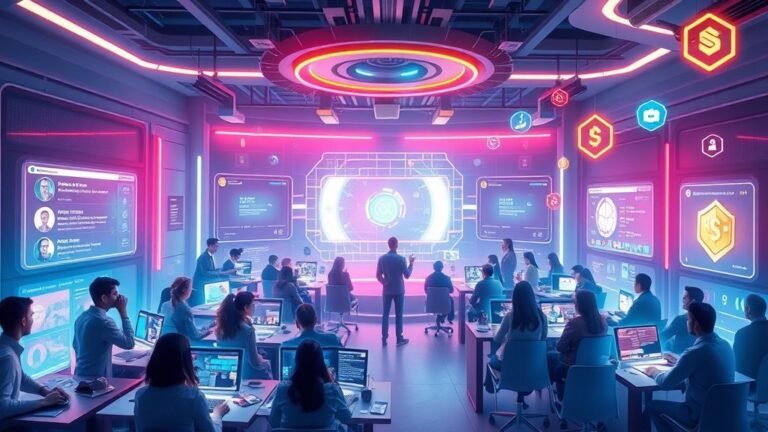Artificial Intelligence (AI) has become a game-changer for businesses in 2025. From personalized customer experiences to advanced automation, AI is driving efficiency, innovation, and growth across industries. However, one of the biggest challenges businesses face is deciding how to implement AI.
Should you build an in-house AI team or partner with an Artificial Intelligence Development Company?
Both approaches have their pros and cons, and the right choice depends on your business size, goals, budget, and long-term AI strategy.
In this blog, we’ll compare Artificial Intelligence Development Companies vs. In-House AI Teams, breaking down their advantages, challenges, and best-fit scenarios to help you make an informed decision.
1. Understanding the Two Approaches
Artificial Intelligence Development Company
An AI development company is a specialized service provider that builds custom AI solutions for businesses. They typically offer services like:
-
AI consulting and strategy development.
-
Machine learning, NLP, and computer vision solutions.
-
Chatbots, predictive analytics, and automation systems.
-
End-to-end AI project delivery.
👉 Think of them as AI partners who bring expertise, tools, and ready-to-use frameworks to accelerate your AI journey.
In-House AI Team
An in-house team involves hiring full-time AI professionals such as data scientists, machine learning engineers, and AI architects. They become part of your company and work exclusively on your projects.
👉 Think of them as your dedicated AI workforce, aligned with your business culture and long-term goals.
2. Key Advantages of an Artificial Intelligence Development Company
✅ Access to Expertise: Development companies have multi-disciplinary teams with expertise in different AI domains.
✅ Faster Time-to-Market: They use pre-built models and frameworks to accelerate AI deployment.
✅ Cost-Effective: You pay for services as needed, without long-term staffing costs.
✅ Scalable Services: Easily scale projects up or down based on business needs.
✅ Latest Tools & Innovations: They stay updated with cutting-edge AI technologies.
✅ Lower Risk: Proven processes reduce chances of failure.
👉 Best for businesses that want quick, high-quality AI adoption without building internal capabilities from scratch.
3. Key Advantages of an In-House AI Team
✅ Full Control: You own the entire development process.
✅ Custom Focus: Team members work exclusively on your projects, adapting to business needs.
✅ Long-Term Alignment: They deeply understand your company’s culture, goals, and data.
✅ Confidentiality & Security: Sensitive data stays fully in-house.
✅ Continuous Innovation: Teams can keep improving AI solutions over time.
👉 Best for businesses that want long-term AI infrastructure and intellectual property ownership.
4. Challenges of an Artificial Intelligence Development Company
❌ Dependency on Vendor: Businesses rely heavily on the external provider.
❌ Knowledge Transfer Issues: Harder to retain internal expertise once the project ends.
❌ Limited Customization at Times: Some companies may rely too much on pre-built solutions.
❌ Data Security Concerns: Sharing sensitive data with third-party providers can be risky.
5. Challenges of an In-House AI Team
❌ High Costs: Recruiting, salaries, and training AI professionals are expensive.
❌ Talent Shortage: Finding skilled AI experts is difficult in 2025.
❌ Longer Setup Time: Hiring and onboarding takes months before projects can start.
❌ Limited Exposure: Internal teams may lack exposure to cutting-edge industry practices.
❌ Scalability Issues: Scaling AI projects may require continuous hiring and infrastructure expansion.
6. Cost Comparison: AI Development Company vs. In-House Team
| Factor | AI Development Company | In-House AI Team |
|---|---|---|
| Upfront Costs | Low (project-based pricing) | Very high (hiring, infrastructure, salaries) |
| Ongoing Costs | Pay as you go | Continuous payroll, training, tools |
| Scalability | Easy to scale up or down | Expensive & slower |
| Long-Term ROI | Good for short to medium-term projects | Better for long-term strategic initiatives |
👉 AI Development Company = Lower upfront investment
👉 In-House AI Team = Higher long-term control but costly
7. When to Choose an AI Development Company
-
Your business is new to AI and lacks internal expertise.
-
You need to launch an AI solution quickly (chatbot, recommendation engine, predictive analytics).
-
You want to test AI feasibility before long-term investment.
-
You have budget constraints and can’t afford full-time AI staff.
-
Your projects are short to mid-term in scope.
Example:
An e-commerce startup hires an AI development company to build a product recommendation engine in just 3 months, instead of waiting a year to build an internal AI team.
8. When to Choose an In-House AI Team
-
Your business has a long-term AI roadmap and plans to embed AI into multiple processes.
-
You want full control and ownership of AI intellectual property.
-
You handle sensitive data (e.g., healthcare or finance) and prefer not to share it externally.
-
You have the budget and resources to build and retain a skilled AI team.
-
You need continuous AI innovation within the company.
Example:
A large bank builds an in-house AI team to work on fraud detection, risk analysis, and algorithmic trading, ensuring maximum data security and long-term expertise.
9. Hybrid Approach: The Best of Both Worlds
Many successful businesses in 2025 adopt a hybrid model, where they:
-
Partner with an AI development company for initial setup, prototypes, and specialized solutions.
-
Gradually build an in-house AI team to maintain and scale solutions long-term.
👉 This reduces risks, lowers initial costs, and ensures sustainable AI adoption.
10. Final Verdict: Which Should You Choose?
-
AI Development Company is ideal for startups, SMEs, and companies looking for quick, cost-effective AI adoption without building in-house expertise.
-
In-House AI Team is better for enterprises and organizations with a long-term AI vision, higher budgets, and data sensitivity concerns.
In many cases, the hybrid approach offers the best balance between speed, cost, and long-term sustainability.
Conclusion
The choice between an Artificial Intelligence Development Company vs. In-House AI Team depends on your business goals, budget, and resources.
If your goal is to experiment, innovate quickly, and minimize costs, an AI development company is the smart choice.
If your goal is to own AI as a long-term competitive advantage, building an in-house team makes more sense.
Either way, the most important step is to align your AI strategy with your business vision. By choosing the right approach, you’ll not only accelerate digital transformation but also gain a sustainable competitive edge in the AI-driven economy of 2025.





